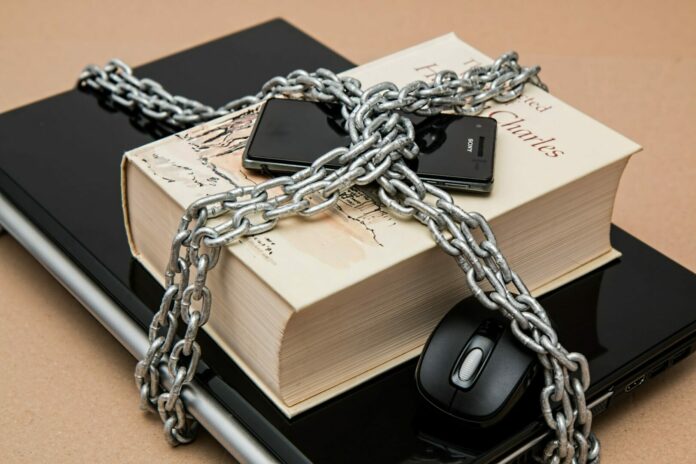A while back, cameramen would make ends meet by visiting the village. The visits would entail capturing the moments may it be a birthday celebration or a family gathering.
After a week or so after travelling to the nearest city or town and developing the images, the camera man would come back with the photographs and would charge between Ksh 20 to Ksh 50 per photo.
That business is now obsolete since photography has now gone digital. We now have cameras on our phones, and the Nikons and Canons are also very affordable. The internet has changed everything and we no longer have to store photographs in a photo album but on cyberspace i.e iCloud, Instagram etc.
How you can sue and get compensation if someone leaks your private photos, videos
As a result of digital migration and technology, one may attend an event or volunteer for a photo shoot but later on find their images on an advert, social media (Facebook, Twitter or Instagram) or billboard without their consent.
That then bears the question, are you protected under the law from malicious persons who might use your images for their commercial use or gain? Can you sue for damages under our Kenyan Court system?
The appropriation of a person’s image or likeness for the commercial benefit or advantage of another may well call for legal intervention in order to protect the individuals concerned. That may not apply to the kinds of photographs or television images of crowd scenes which contain images of individuals therein.
However, when the photograph is employed, as in this case, for the benefit of a magazine sold to make profit or a Facebook/Instagram post to gain followers, it constitutes an unjustifiable invasion of the person’s rights the individual, including the person’s dignity and privacy.
Cybersecurity experts graduate from USIU’s Cyber Shujaa Program
Care ought to be exercised in respecting a person’s dignity and privacy rights. The Constitution of Kenya under Article 28 provides that:-
- Every person has inherent dignity and the right to have that dignity respected and protected.
Under Article 31 (b) of the Constitution:-
- Every person has the right to privacy, which includes the right not to have—
(c) information relating to their family or private affairs unnecessarily required or
revealed;
The use of one’s images for commercial use without their consent is then not only offensive but it is an express and direct invasion of his or her human dignity and privacy.
How to Keep Your Bank Account Safe from Fraudsters
Further to explain this right to privacy, The Consultative Assembly of the Council of Europe has defined Article 8(2) of the European Convention on Human Rights, which provides for the right to privacy of an individual as follows:-
“The right to privacy consists essentially in the right to live one’s own life with minimum interference. It concerns private family and home life, physical and moral integrity, honour and reputation, avoidance of being placed in a false light, non-revelation of irrelevant and embarrassing facts, unauthorized publication of private photographs, protection from disclosure of information given or received by the individual confidentially.”
How far does the right to privacy extend or what are the parameters that might be used to determine the infringement of privacy?
In determining a case where a local television wedding show aired a wedding ceremony without the consent of the groom, the High Court of Kenya relied on factors considered by the Constitutional Court of South Africa as follows:
- whether the information was obtained in an intrusive manner;
- whether it was about intimate aspects of the applicants’ personal life;
- whether it involved data provided by the applicant for one purpose which was then used for another;
- whether it was disseminated to the press or the general public or persons from whom the applicant could reasonably expect such private information would be withheld.”
From above, it is clear that the publication or use of the images of an individual without his consent violates that person’s right to privacy. A person’s life is a restricted realm in which only that individual has the power of determining whether another may enter, and if so, when and for how long and under what conditions. Therefore there must be a contract or consent between the photographer and the client before any publication or use of the photos for commercial use or promotion.
How to Protect your business from Cyberattacks
However, the right to privacy is not absolute but is limited by the legitimate interests of others and the public interest. An example would be where one needs to expose an individual’s criminality or misconduct in order to protect the public.
About the author
Ngugi Mburu is a Commercial and Litigation lawyer with a reputable Law Firm in Nairobi.
Mr Mburu is an Experienced Advocate of the High Court of Kenya with a demonstrated history of working in the law practice industry. Skilled in Conveyancing, Copyright, Trademark and Patent, Family Law, Child Maintenance and Custody, Succession, Mediation, Debt Collection, Mergers and Acquisitions, Insolvency and Bankruptcy, Employment Arbitration, and Commercial Litigation. Strong business development professional with a Masters of Laws – LLM focused in Environmental Law from the University of Nairobi.
When I am not giving my ear and attention to my clients I engage in sport tourism and ultra-marathon. I also believe communication is key and I have therefore vowed not to miss any calls or to respond to my emails every hour.
Email: [email protected] for any enquiries or clarifications.








